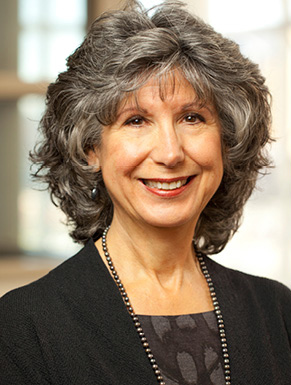Nurse scientist leads project to scale support for caregivers of people with dementia

Nurse researcher develops a support program to help caregivers with the hospital-to-community transition of family members with dementia.
When people with dementia are released from hospitalization, they are sent home in the care of family members or friends who are given discharge instructions for medication regimens and therapy. Such home care instructions can be difficult for people with dementia — and for their caregivers who lack formal training in such practices.
Behavioral changes may occur during or following hospital stays, medication regimens can be intricate, conditions may limit mobility — those and other complications can be stressful and problematic for family caregivers who already are fatigued, face other obligations and perhaps have their own health problems.
That’s what prompted a team of researchers in the Family Caregiving Institute at the Betty Irene Moore School of Nursing at UC Davis to conceive a support program to help caregivers with the hospital-to-community transition of family members who have dementia. The interprofessional team leaders includes co-principal investigators Ladson Hinton, a psychiatrist and medical professor; and Heather M. Young, an internationally recognized nurse scientist and aging expert. A grant from Archstone Foundation of Long Beach, California, funds the project, which is under way in collaboration with UC Davis Medical Center. Archstone Foundation priorities include the development of innovative responses to the needs of caregivers for older family members.
 Elena O. Siegel
Elena O. Siegel
Elena O. Siegel, an associate professor in the School of Nursing who is principal investigator for the project, is an expert in implementation processes — the steps required to apply evidence in practice.
“Our goal is to help caregivers navigate the changes they’re going to face,” Siegel says. “We are examining which elements of programs elsewhere have been found to be successful, and collaborating with UC Davis Medical center to develop a sustainable program — a program that fits with their work flows, their systems and their processes, and their goals, values and priorities.”
Passage of the California Hospital and Family Caregiver Law, which is California’s implementation of federal Caregiver Advise, Record, Enable (CARE) Act legislation, complements this caregiver research project. The CARE act requires hospitals to formally recognize family caregivers as members of the health care team and release important post-hospitalization care information to them.
Because some caregivers need more help than others, flexibility is a cornerstone of the project, which incorporates a gradated menu of resources scaled to the needs of individual caregivers.
“The overarching goal of this project is to improve the health and well-being of family caregivers,” Siegel says.
After completing the 12-month planning phase of the project in June 2019, Siegel and the research team will seek funding for phase 2: implementing and evaluating the program at UC Davis Medical Center. She expects to subsequently disseminate the findings to the health care community at large. Siegel’s plans include development of a toolkit to support other health care systems with implementation of the program for family caregivers of people with dementia in transition from hospitalization.





